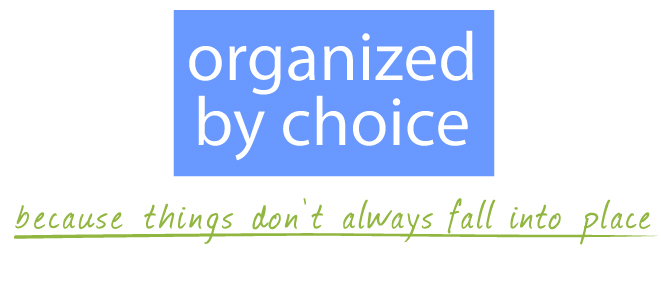"You're going to need a BIGGER CLOSET," said the ad in my Real Simple magazine. It was touting the idea that if the shoe fits, buy one in every color. But what if you're like the woman who called me today and already has 200 pairs of shoes? I'm going to go out on a limb and say a bigger closet isn't always the answer.
In today's society bigger and more is almost always associated with better. We don't want to admit that we don't have room, don't have time, or can't afford it. So, we cram more into our space or calendar. We extend our credit to create the illusion that we have unlimited resources.
I recently heard a wealthy young man interviewed on the radio. He is very philanthropic. The interviewer asked, "How do you decide how much you're going to give?" His answer was compelling. He and his wife determined how much they need to live on and then choose to give away everything they earn above that. Gives a whole new meaning to "more is better," doesn't it?
A term made popular by Julie Morgenstern in the organizing world is "equalize." It's the final step in her SPACE formula-- Sort, Purge, Assign Homes, Containerize, and Equalize. In her book Organizing from the Inside Out, Morgenstern uses the term to describe the maintenance part of organizing. There are many facets to maintaining organization, but today I want to focus on equalizing as it's defined in the dictionary-- to make even or equal.
Today's Timely Tips will help you determine where you're out of balance and how to restore order.
TIMELY TIPS - to equalize your space, time, and money
Space
When you equalize your space you don't create walk-in closets that you can't walk into. You don't have pantry supplies spilling out of the cupboards, or office storage so crammed that you can't see what you have.
Just like the wealthy young man, you first determine how much you need. How many pairs of black boots? How many coffee mugs? How many sets of sheets? Intentionally keep the amount you need-- choose your favorites, and let the rest go.
For consumables decide how much space you have or want for them to occupy. Keep it equalized by not buying more than will fit. Yes, even if it's on sale! It may cost you more later, but it will cost you more now in terms of space and stress if you exceed your predetermined boundaries.
Time
When you equalize your schedule you don't add and add new responsibilities until you're running ragged. You don't crumble under the weight of over-commitment.
Rather than adding things will-nilly, evaluate how much discretionary time you have. Make a list of what's important to you. Schedule those commitments and activities according to priority making sure to include some down-time. When a new request or opportunity arises, look at your schedule and make a choice. Will it replace something because it's more important? Can you add it later when another commitment ends? Equalize.
Money
When you equalize your money, you're not smothered in credit card debt. You don't succumb to "buy one in every color" ads.
I can't think of a better time to consider how to equalize finances than the holiday season. The most obvious way is to not spend more than is coming in. Can you imagine a January not stressed by credit card bills?
Give yourself permission and explain to others if need be that you're intentionally cutting back this year to keep from acquiring more debt.
Determine the discretionary amount of money you have and create a list of priorities. From that list create a holiday budget. When you discover something cost more than expected, equalize by cutting back on something else. You can do it! In January you will breathe a sigh of relief instead of grief.
Wise Words
The most difficult thing is the decision to act. The rest is merely tenacity. -Amelia Earhart
